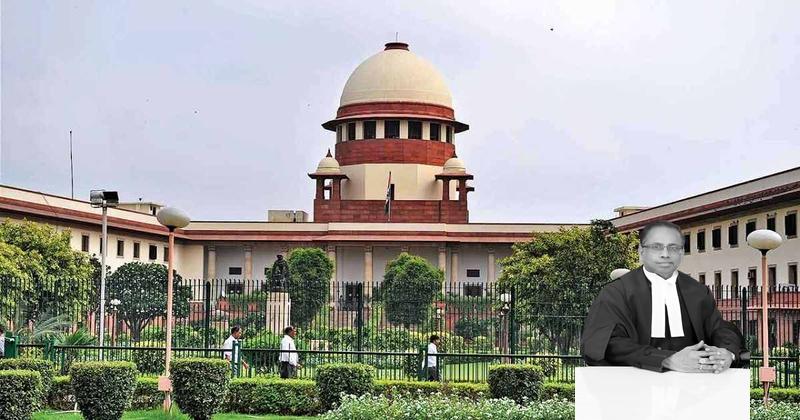Explore the detailed legal analysis undertaken by the High Court regarding the taxation powers in a federal polity concerning the IGST Act and CGST Act. The court’s scrutiny of notifications and their alignment with the constitutional framework sheds light on the complex interplay of laws governing taxation. Stay tuned to unravel the nuances of federalism in the domain of indirect taxes.
Facts
- The High Court allowed a petition challenging the constitutionality of two notifications of the Central Government.
- The Division Bench of the Gujarat High Court held that the notifications exceeded the powers conferred by the IGST Act and CGST Act.
- Section 5(1) of the IGST Act authorizes the levy of integrated tax on all inter-state supplies of goods and services
- Integrated tax can also be levied on goods imported into India based on the value determined under the Customs Tariff Act 1975 when customs duties are imposed under the Customs Act 1962
- Section 11 of the IGST Act specifies the place of supply of services as the destination of the goods in the case of transportation
- Prior to GST regime, service tax on ocean freight was exempted but later levied through a reverse charge mechanism
- Notification No.8/2017- Integrated Tax (Rate) imposed a 5% integrated tax on specified services, including transportation of goods from outside India up to the customs station in India
Also Read: Balancing Power and Transparency: Electoral Bonds Struck Down, Disclosure Mandated
Issue
- The bone of contention is whether an Indian importer can be subject to the levy of Integrated Goods and Services Tax on the component of ocean freight paid by the foreign seller to a foreign shipping line, on a reverse charge basis.
Also Read: Recall of Resolution Plan Approval: Legal Analysis
Arguments
- The petitioner challenged Notification 8/2017 and Notification 10/2017 before the Gujarat High Court.
- The petitioner argued that the notifications were ultra vires the IGST Act and CGST Act.
- Double taxation was a concern as customs duty is levied on the component of ocean freight, along with the IGST on the freight element during transportation.
- Concern was raised regarding high sea sales where the importer and recipient of service are different entities but may be taxed twice.
- In CIF contracts, the supply of service of transport of goods by a foreign shipping line located outside taxable territory to an exporter also in a non-taxable territory cannot be taxed under the IGST Act.
- Notification 10/2017 was criticized for transgressing Section 5(3) of the IGST Act by making the ‘importer’ liable to pay tax instead of the ‘recipient’.
- Entry 9(ii) and para 2 of Notification 8/2017, read with Notification 10/2017, were argued to create a deeming fiction and a separate taxable event, which was deemed impermissible by law.
- (i) Under Section 5(4) of the IGST Act, the Government cannot specify the person liable to pay service tax on a reverse charge basis:
- (a) Section 5(3) of the IGST Act provides that the Government may specify the categories of supply of goods or services or both on which the tax shall be paid on reverse charge basis by the recipient of the goods or services.
Analysis
- The Indian importer under a CIF contract is not considered the recipient of transportation services according to Section 2(93) of the CGST Act, as the actual recipient is the foreign exporter.
- Section 5(3) of the IGST Act allows the government to specify categories of supply, not third-party recipients.
- There is no territorial nexus for taxation in the case of transportation services from a non-taxable territory to another non-taxable territory via India.
- Import of services is defined in Section 2(11) of the IGST Act as a service where the supplier is located outside India and the recipient is in India, which is not applicable in the case of transportation services.
- The High Court highlighted that Sections 12 and 13 of the IGST Act on determining the place of supply do not apply when both the supplier and recipient are outside India.
- The value of supply determination under Section 15(1) of the CGST Act is only between the actual supplier and recipient of the service, not involving third parties like the importer.
- The imposition of double taxation through notifications is deemed impermissible by the High Court in the case of the importer paying customs duties that include the value of ocean freight.
- The exclusive powers of taxation held by the States and the Centre on matters of taxation are regarded as an important feature of India’s federal polity.
- Article 246A grants both Parliament and the State Legislatures equal power to legislate on aspects of GST.
- The distribution of legislative power between the Union and the States is a paramount feature of a federal Constitution.
- The rules had sought to effect a reverse charge by identifying the customers of goods transport operators and clearing and forwarding agents as the assesses.
- The federal system is a means to accommodate the needs of a pluralistic society to function in a democratic manner.
- Article 246 and 254 have been central to the debate on the federal nature of the Indian Constitution.
- The impugned notifications were issued with the intention of creating a level playing field between the Indian and foreign shipping lines.
- In the pre-GST regime, the Union had the exclusive power to impose indirect taxes.
- The impugned notifications were issued after the GST Council took note of the fact that the transport of imported goods by Indian shipping lines to India is not treated as export of service.
- The GST regime has subsumed all the indirect taxes.
- Notification 10/2017 specifies the recipient of the importer as the taxable person for reverse charge.
- Section 5(4) of the IGST Act allows the Central Government to specify a class of registered persons as recipients.
- The levy on the ‘service’ aspect of the transaction is deemed to violate the principle of ‘composite supply’.
- Indian federalism involves a dialogue between cooperative and uncooperative federalism.
- The Government is bound by the recommendations of the GST Council in exercising rule-making power.
- Not all recommendations of the GST Council are binding on the legislature’s power to enact primary legislation.
- Import of goods under a CIF contract is considered an ‘inter-state’ supply subject to IGST.
- The IGST Act and CGST Act define reverse charge and specify the entity to be taxed accordingly.
Decision
- The appeals have been dismissed.
- Any pending applications have been disposed of.
Case Title: UNION OF INDIA Vs. M/S MOHIT MINERALS PVT. LTD. (2022 INSC 596)
Case Number: C.A. No.-001390-001390 / 2022



